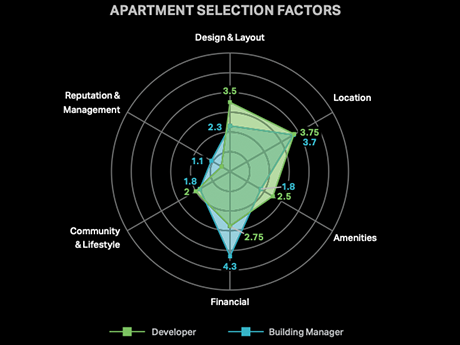DALLAS — Affordability is more important to renters than location and amenities, according to a study from Hugo, the research team of Dallas-based architect Corgan. The Residency Reshaped report examined how renters’ priorities have shifted because of hybrid work trends, high costs of living and inflation.
Researchers surveyed 1,480 renters in six Sun Belt markets: Atlanta, Austin, Dallas, Denver, Nashville and Phoenix. Residency Reshaped targeted renters between the ages of 25 and 45 who had leased for at least one year and who paid at least $1,500 per month in rent. The research team then analyzed the data to identify significant associations between demographic, geographic and behavioral factors.
Additionally, the research team conducted interviews with 10 renters, 10 developers and 10 property managers. The purpose was to uncover key industry perspectives and shed light on broader market dynamics and assumptions, according to Corgan.
According to the study, affordability has surpassed amenities and location as the primary driver for renter decisions. Property managers reported that, while these other factors are still important, many renters are more drawn by cost-saving and value. Operators stated that strategies such as discounted rates, waived fees and first-month rent discounts are the most effective way to attract tenants.
However, the report also indicated that residents are willing to pay for amenities that emphasized convenience while also reducing their external expenses. Residents reported that the amenities they used most often were the fitness center, pool, laundry facilities, garden and business center or coworking spaces.
Seventy-four percent of residents reported that they would be willing to spend between $100 to $200 more on rent per month for their desired amenities.
Interest in technology features such as smart home devices was also strong, with 82 percent of survey participants stating that they would like to have at least one smart device in their residence. However, most renters were interested in specific devices with a purpose, rather than a fully integrated smart home system.
When it comes to smart technology, renters want features like smart thermostats, smart locks, keyless entry systems, smart appliances and smart lights, the survey revealed. The least important features included package lockers, voice controlled home automation systems and smart outlets.
“This approach helped us gather deep insights into prevailing industry mindsets, which are further enriched through detailed renter surveys,” remarked Melissa Hoelting, assistant director of Hugo. “We began with the Sun Belt, but this repeatable framework allows us to take a localized look into new markets with more insights to discover.”
Corgan stated that the goal of the Residency Reshaped report was to offer insight into how developers and owner-operators can best bridge the gap between industry expectations and renter experiences to enhance property appeal and improve resident retention.
“While renters are often indifferent to passive communal amenities like recreation rooms and coworking spaces, they value opportunities for community engagement through structured events, such as fitness classes and seasonal celebrations,” Corgan remarked in a statement regarding the report. “This promotes [community] connections without relying on passive or organic interactions.”
Established in 1938, Corgan is an architecture and design firm with 16 offices throughout the U.S. The company’s global revenues totaled roughly $400 million in 2023.
— Channing Hamilton


